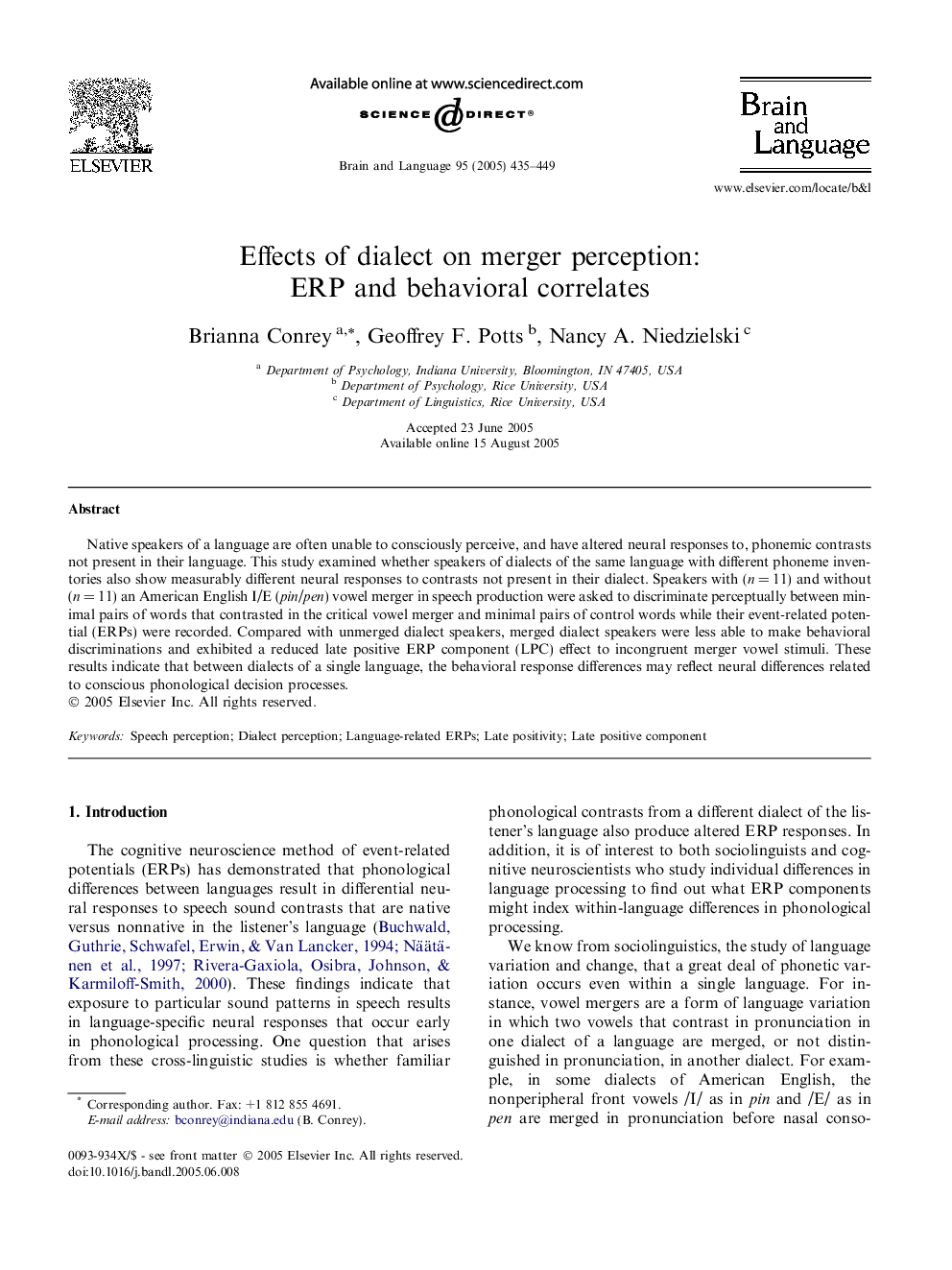| Article ID | Journal | Published Year | Pages | File Type |
|---|---|---|---|---|
| 10456709 | Brain and Language | 2005 | 15 Pages |
Abstract
Native speakers of a language are often unable to consciously perceive, and have altered neural responses to, phonemic contrasts not present in their language. This study examined whether speakers of dialects of the same language with different phoneme inventories also show measurably different neural responses to contrasts not present in their dialect. Speakers with (n = 11) and without (n = 11) an American English I/E (pin/pen) vowel merger in speech production were asked to discriminate perceptually between minimal pairs of words that contrasted in the critical vowel merger and minimal pairs of control words while their event-related potential (ERPs) were recorded. Compared with unmerged dialect speakers, merged dialect speakers were less able to make behavioral discriminations and exhibited a reduced late positive ERP component (LPC) effect to incongruent merger vowel stimuli. These results indicate that between dialects of a single language, the behavioral response differences may reflect neural differences related to conscious phonological decision processes.
Related Topics
Life Sciences
Neuroscience
Biological Psychiatry
Authors
Brianna Conrey, Geoffrey F. Potts, Nancy A. Niedzielski,
